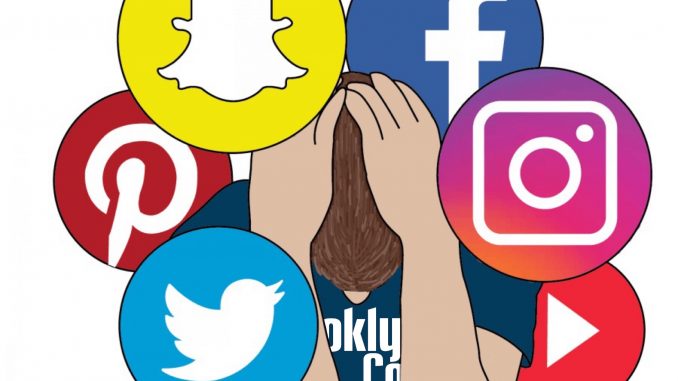
By Serin Sarsour
Recently, two former Facebook employees, Frances Haugen and Sophie Zhang, have come out with stories accusing Facebook of being detrimental to the mental health and body image of its users. Many psychology students at Brooklyn College thought that their decision to blow the whistle on Facebook was reasonable.
“I believe that it is important for social media users to be informed and aware of all the things that come with using it, such as body image issues and other influences it can have on mental health,” said BC sophomore Samaa Hussein.
Haugen claimed that Facebook was aware that its platform negatively affects the way teenage girls view themselves, and the company refused to edit its software to prevent hate speech and other harms to its users, according to The Washington Post.
“We constantly are being exposed to standards of living that don’t seem attainable. This could be money, materialistic things, and beauty standards,” said Alexandria Morales, a BC sophomore. She explained that these implications make young adults feel as though they are not good enough to meet impossibly high standards. As a result, Morales concluded that Facebook and other social media apps negatively affect people’s mental health, making many feel depressed and insecure.
For Eliana De Sa, a BC third-year student, these tolls that social media can have on youth remind her of an animated movie she watched with her brother called “Ron’s Gone Wrong.”
“[…] Little kids were trying so hard to be liked and loved by gaining followers and likes that they were willing to do anything. And when they didn’t obtain that result in numbers and likes and followers, they themselves would feel like failures,” De Sa said, describing the parallels the film has to the feeling of not being enough that young people arguably know all too well.
To BC sophomore Reann Satyabhashak, some content creators and social media influencers should also be held responsible for harming young people’s mental health and body image. “I don’t know if it’s anything the app [Facebook] itself can do, but the people who put out negative body images and portray an unhealthy and unnatural way to look should definitely take into consideration the effects it will have on people, especially younger people,” said Satyabhashak.
The whistleblowers also reported that Facebook prioritizes its profits over its users. The company continues to make money off of teen girls’ insecurities rather than combat the hate speech, false information, and unrealistic standards the app possesses and displays, they explained.
“People want to look like the models they see on social media, but what people don’t realize is how much editing, photoshop, and face tuning goes into creating the perfect picture for people to put on social media. It is not always natural,” Satyabhashak said.
De Sa believes that people should not wait or rely on Facebook to make changes to reduce its harm to people’s mental health and body image because that may not happen any time soon. She believes that people should take matters into their own hands.
“I definitely believe it’s just a matter of awareness and showing prevention methods. Like in one of my psych classes, we were talking about apps that help with anxiety and depression and help cope with it. And it’s important to also speak to therapists and professionals,” said De Sa.
De Sa believes that Facebook still has a lot of work to do and should shed light on the negative impact social media has on people. “I think when they put aside the profits and they start focusing on people’s health and viewing people, not as numbers or ways to profit, but people with real lives, then they can start implementing resources that will help individuals… such as warnings and time limits,” De Sa explained.
